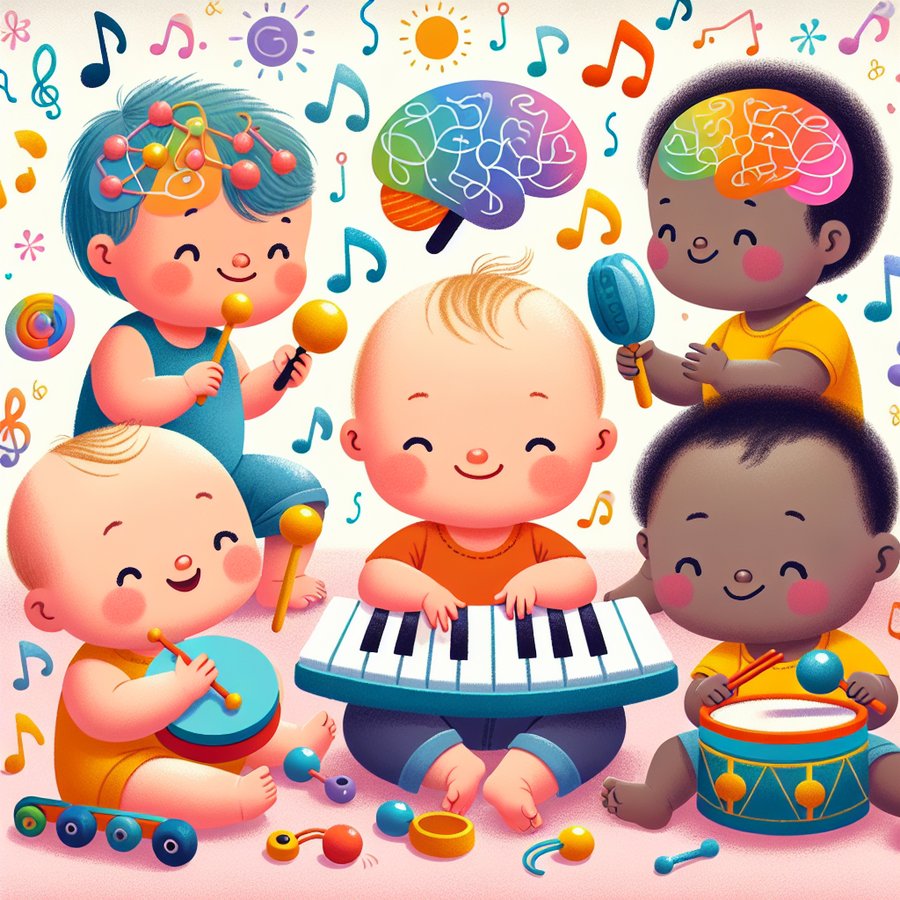The role of music in infant brain development is a symphony of cognitive, emotional, and sensory growth, playing a crucial role in shaping the minds of the youngest members of our society. From the earliest days of life, music can stimulate brain activity and foster an environment conducive to developmental leaps. This article delves into the intricate relationship between musical exposure and the developing infant brain, offering insights into how parents and caregivers can harness the power of melodies and rhythms for optimal growth.
The Science Behind Music and Brain Development
Research has consistently highlighted the positive effects of music on the developing brain. Neuroscientific studies reveal that early musical exposure can enhance neural processing, boost memory, and improve attention spans in infants. Engaging with music, whether through listening, singing, or playing instruments, activates multiple brain areas, including those involved in auditory processing, emotional regulation, and motor functions. This multifaceted stimulation promotes neural plasticity, laying the foundation for advanced cognitive skills.
A landmark study published in the journal ‘Developmental Science’ found that babies who participated in interactive music classes displayed better early communication skills, more sophisticated brain responses to music, and even a stronger preference for tonal patterns associated with music compared to those in a control group. This evidence underscores the role of music in infant brain development, suggesting that musical activities can be a powerful tool for supporting early childhood growth. For further reading, explore this external link.
The Role of Music in Infant Brain Development
The role of music in infant brain development extends beyond cognitive enhancements, touching on emotional and social growth as well. Music can serve as an emotional anchor for infants, providing comfort and security through familiar tunes. Additionally, musical activities often encourage interaction, whether between parent and child or among peers in a group setting, fostering social bonds and enhancing communication skills.
Incorporating music into your baby’s daily routine doesn’t require extensive musical knowledge or talent. Simple actions like singing lullabies, playing gentle classical music, or even humming can make a significant difference. To maximize the benefits, consider integrating music into various activities throughout the day. For practical tips, refer to Integrating Music into Your Baby’s Daily Routine for Cognitive Benefits.
Practical Ways to Integrate Music into Your Infant’s Development
Engaging your infant with music can be both simple and enjoyable. Start by incorporating music into routine activities, such as playtime or bedtime. Experiment with different genres and observe your baby’s response, adjusting the musical selection based on their preferences. Interactive musical toys and instruments designed for infants can also provide sensory stimulation and encourage curiosity.
For parents looking to deepen their understanding of how music influences other areas of development, exploring resources like The Importance of Sensory Play for Newborn Development and Encouraging Exploration and Curiosity in Infants can offer valuable insights. Additionally, attending baby music classes can be a fantastic way to introduce structured musical exposure while also providing an opportunity for social interaction with other infants and parents.
In conclusion, the role of music in infant brain development is a melody of growth, learning, and connection. By integrating music into the daily lives of our youngest, we not only enhance their cognitive abilities but also nurture their emotional and social well-being. As research continues to unveil the benefits of musical exposure, it becomes increasingly clear that music holds the keys to unlocking a world of developmental opportunities for infants.













